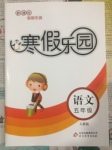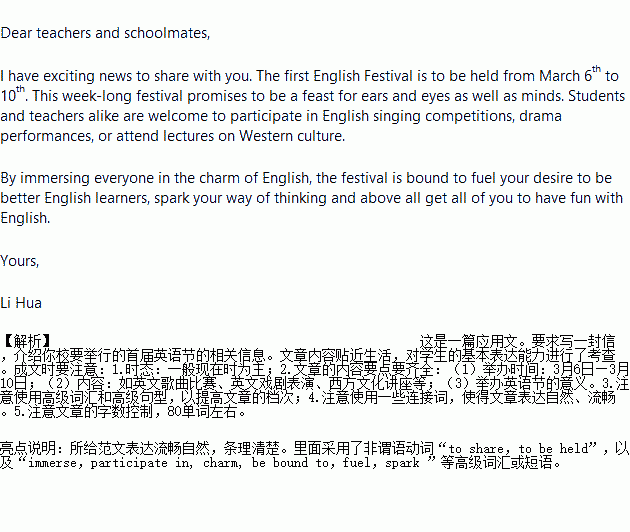题目内容
你校要举办首届英语节(English Festival),假如你是学生会主席李华,请你用英语给全校师生写一封信。信的内容主要包括:
1. 举办时间:3月6日—3月10日;
2. 内容:如英文歌曲比赛、英文戏剧表演、西方文化讲座等;
3. 举办英语节的意义。
注意:
1. 词数80左右;
2. 可适当增加细节,以使行文连贯。
____________________________________________________________________________________________________________________________________________________________________________________________________________________________________________________________________________________
________________________________________________________________________________________________________________________________________________________________________________________________________________________________________________________________________________________________________
练习册系列答案
 寒假乐园北京教育出版社系列答案
寒假乐园北京教育出版社系列答案
相关题目


 t always easy.
t always easy. , they often reach excellent academic results.
, they often reach excellent academic results.